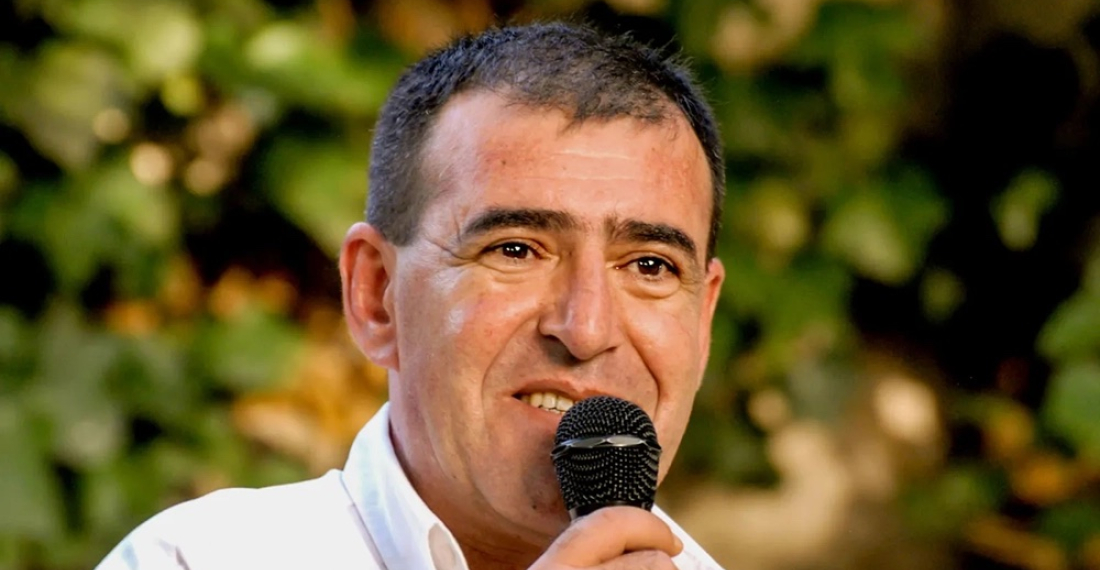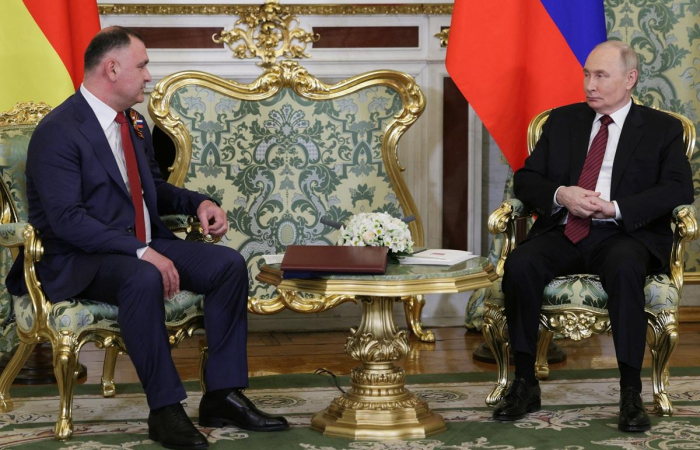Yesterday marked the fourth anniversary of the untimely passing of Armenian theatrical director turned peace activist Georgi Vanyan. He was 58.
I last spoke to Georgi at the end of September 2021 in an unexpected call when he visited Tbilisi during the pandemic. He planned to return to the ethnic Azerbaijani village of Tekali in Georgia situated on the intersection of the country with Armenia and Azerbaijan. The plan was to travel to Tekali together again. In the early 2010s, it had been the location for perhaps the most genuine grassroots effort to bring together citizens – analysts, journalists, and everyday folk alike – from all three countries to discuss issues of mutual interest.
Two days later, he sent a short text message. He had just tested positive for COVID-19 and so he would have to recover first. He was already in self-isolation.
As we know, he didn’t recover and passed away on 15 October. To be honest, many of us knew that this would happen as soon as we were told he had been transferred to a ventilator in a Georgian hospital. The shock was not as much as it would have been otherwise. The sadness, however, remained immense. It also cast a dark shadow over any hopes that Georgi’s activities could resume again following the devastating war between Armenia and Azerbaijan a year earlier in 2020.
During that renewed conflict, Vanyan publicly released a letter he sent to Armenian Prime Minister Nikol Pashinyan calling on him to end the war and immediately enter into talks with Baku. His request was ignored, of course, and Georgi was instead visited by police and fined. Pashinyan had already effectively walked away from the now defunct OSCE Minsk Group while gaffe after gaffe by his new revolutionary administration had made the war more inevitable than ever before.
Even in an interview I conducted with Georgi in 2009 he had foreseen that Armenia and Azerbaijan were heading in that direction though few others did. The question was not if but when. For many civil society activists in Armenia, let alone politicians, Georgi was a maverick. In my 2009 interview, he stressed that rather than hold conferences in expensive hotels in faraway destinations usually outside the region, he instead held them in local markets and cultural houses or more humble locations.
He had hoped that often heavily funded NGOs would follow suite and take their activities to where it mattered most – the actual population not just in the capitals but throughout the entire country, both rural and urban. There is currently perhaps only one NGO based in Vanadzor in Armenia that does similarly with the younger generation and others today. This demographic was important to Georgi too. In 2007, he hosted writers from Azerbaijan at an event held at a school in Yerevan.
Nationalist bloggers momentarily disrupted the event. A few years later, his critics threw stones or made death threats. The media discredited him at each and every opportunity. Civil society, including some NGOs still operating in this sphere today, marginalised or ostracised him, perhaps fearful for their incomes or simply because any talk of peace came only with their own political biases and demands attached.
It is perhaps sadly poignant that Georgi died in poverty living a village close to the Armenian border with Azerbaijan. His income was mainly operating a taxi service inside Armenia and Georgia. He called it his “peace taxi.” Even when ferrying passengers, Georgi would engage them in discussion about the need for peace and regional integration. Nonetheless, Tekali was his crowning success. The first event in the small border village was held in March 2011.
The topic was Georgia’s potential role in helping resolve the Armenia-Azerbaijan conflict. Participants came from Baku, Tbilisi, and Yerevan as well as the regions of all three countries, including those from Tavush and Qazakh. It was only 14 years later in 2024 that this part of this border between Armenia and Azerbaijan was demarcated. Even so, with the demise of Tekali in the mid-2010s, and Georgi more recently, there remains no interaction between both sides even on neutral ground.
Sadly, most Armenians did not know Georgi when he was alive and even more so after his death. At his funeral in Yerevan, however, there were some noticeable exceptions such as Yerevan Press Club’s Boris Navarsadyan, Soviet-era dissident Paruyr Hairikyan, and former education minister and political figure turned educator Ashot Bleyan. Armenia’s E-Press, an independent media outlet, was also present just as it was a decade earlier covering the meetings in Tekali.
Many more Azerbaijanis involved in the conflict-resolution sphere paid their respects online, though there have also been detractors. In 2019, just a year before the war, an Azerbaijani military analyst warned that Georgi’s approach risked humanising the enemy enough to make war more difficult to wage. His interlocutor in that discussion broadcast on Azerbaijani television instead spoke highly of Georgi just as many more do to this day.
“Now, at this stage of the Armenian-Azerbaijani reconciliation process, the peacebuilding community needed him more than ever,” Ahmad Alili, an Azerbaijani analyst, also wrote publicly soon after his death. “Sincere Person. Genuine Peacebuilder. Great Loss. Rest in Peace, Georgi.”
Georgi Vanyan, 1963-2021.
source: Onnik James Krikorian is a journalist, photojournalist, and consultant from the U.K. who has covered the Armenia-Azerbaijan conflict since 1994. Photo: Georgi Vanyan speaking at a cross border event held in the village of Tekali close to the geographical intersection of Armenia, Azerbaijan, and Georgia © Onnik James Krikorian 2012
The views expressed in opinion pieces and commentaries do not necessarily reflect the position of commonspace.eu or its partners.






